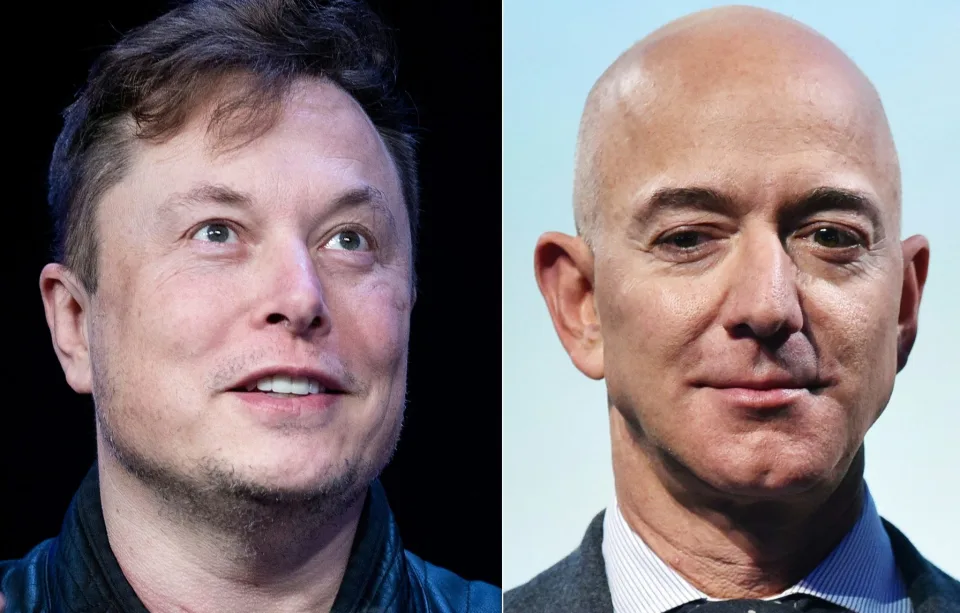We need more humans. That’s the message from two of the world’s richest billionaires, Amazon founder Jeff Bezos and Tesla CEO Elon Musk.
While the two compete in the space business—Bezos owns Blue Origin while Musk has SpaceX—they agree on certain aspect’s of humanity’s future.
“I think in a lot of these endeavors we’re very like-minded,” Bezos said on an episode of the Lex Fridman Podcast released this week. He added, “I don’t really know Elon very well,” but he said that he liked the idea of forming a friendship with him.
Asked what he hoped for humanity’s future in outer space hundreds or thousands of years from now, he replied:
“I would love to see, you know, a trillion humans living in the solar system. If we had a trillion humans, we would have at any given time a thousand Mozarts and a thousand Einsteins…Our solar system would be full of life and intelligence and energy.”
What companies like Blue Origin and SpaceX are doing, he said, is creating the space infrastructure upon which future generations can build greater things.
“When I started Amazon, I didn’t have to develop a payment system. It already existed. It was called the credit card,” he said. “I didn’t have to develop a transportation system to deliver the packages. It already existed. It was called the postal service and Royal Mail and Deutsche Post. And so all this heavy lifting infrastructure was already in place. And I could stand on its shoulders.”
He said that he wanted to use his “Amazon winnings” to build heavy infrastructure that will be used by the space entrepreneurs of future generations.
“When you can have a really valuable space company started in a dorm room, then we know that we’ve built enough infrastructure so that ingenuity and imagination can really be unleashed,” he said. “I find that very exciting.”
He envisions people living in giant space stations, which have “a lot of advantages over planetary surfaces,” including the ability to spin them to create normal gravity. He said most people would want to live near Earth and go there for vacation, “the same way you might go to Yellowstone National Park.”
He sees the Earth’s environment being preserved by heavy manufacturing moving into space, taking advantage of resources on the moon and the asteroid belt.
As for Musk, he’s long stressed the need for humanity to become a multi-planet species, and he envisions SpaceX’s Starship rockets transporting people between Earth and Mars, where a permanent human presence will be established.
“We don’t want to be one of those single planet species, we want to be a multi-planet species,” he said in 2021 after SpaceX sent astronauts into orbit on a reused rocket.
He’s also warned about an “underpopulation crisis” here on Earth. In the summer of 2022, he said the declining birth rates seen in many nations presented “the biggest danger civilization faces by far.”
A few years earlier he had warned, “The biggest problem the world will face in 20 years is population collapse.”
This weekend, he sounded similar warnings while attending a political festival in Italy staged by Prime Minister Giorgia Meloni.
“It’s important to have children and create the new generation,” he told attendees. “As simple as it sounds, if people do not have children there is no new generation.”
Earlier this year, after China released figures showing a plummeting birth rate, Musk tweeted: “Population collapse due to low birth rates is a much bigger risk to civilization than global warming…mark these words.”
This story was originally featured on Fortune.com

